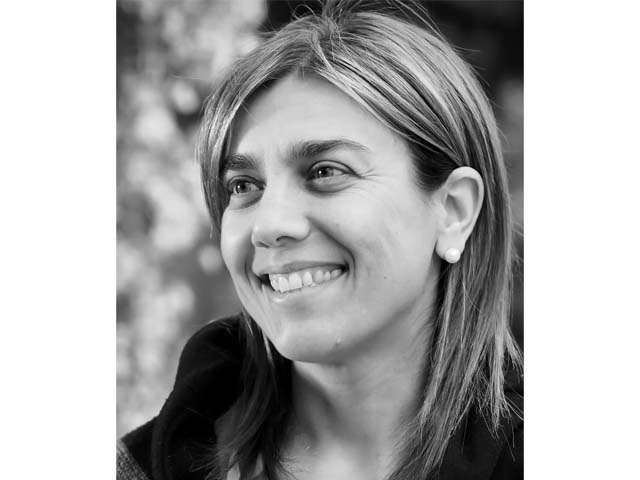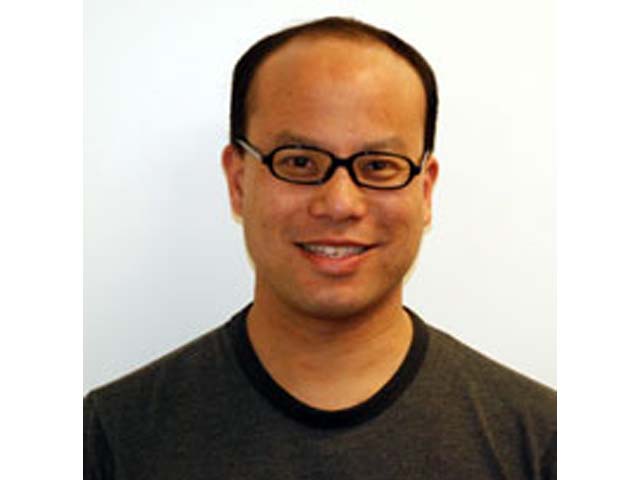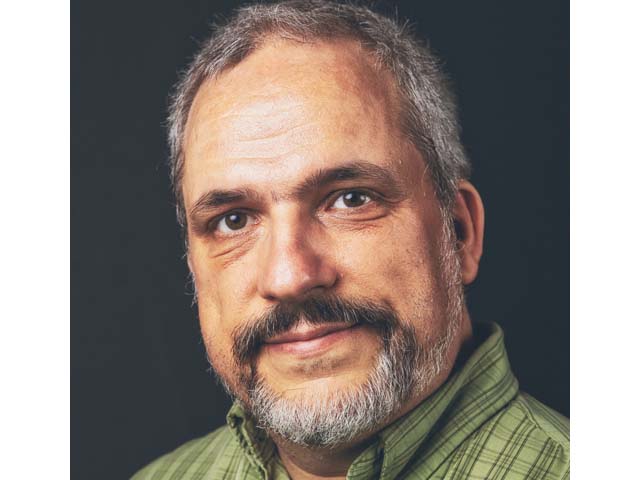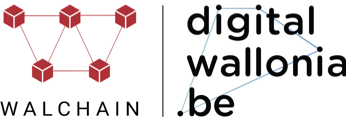About OPODIS 2022
OPODIS is an open forum for the exchange of state-of-the-art knowledge concerning distributed computing and distributed computer systems. All aspects of distributed systems are within the scope of OPODIS, including theory, specification, design, performance, and system building. With strong roots in the theory of distributed systems, OPODIS now covers the whole range between the theoretical aspects and practical implementations of distributed systems, as well as experimentation and quantitative assessments.
Where
UCLouvain
Pavillon des Conférences
Clos Chapelle-aux-Champs 19
1200 Brussels
Belgium
When
Tuesday to Thursday
13-15 December 2022
Keynote Speakers
We hosted the following outstanding speakers.
Committees
Organising Committee
- General Chair:
- Etienne Rivière (UCLouvain, Belgium)
- UCLouvain Organizing Team:
- Carole Djeumo
- Matthieu Pigaglio (Technical co-chair)
- Guillaume Rosinosky (Proceedings chair)
- Donatien Schmitz
- Igor Zavalyshyn (Technical co-chair)
- Steering Committee:
- Panagiota Fatourou (University of Crete, Greece)
- Pascal Felber (Université de Neuchâtel, Switzerland) — chair
- Paola Flocchini (University of Ottawa, Canada)
- Vincent Gramoli (University of Sydney, Australia)
- Yannic Maus (TU Graz, Austria)
- Alessia Milani (LIS, Aix-Marseille Université, France)
- Paolo Romano (INESC-ID, University of Lisbon, Portugal)
- Rotem Oshman (Tel-Aviv University, Israel)
Program Committee
- Program Committee Co-Chairs:
- Eshcar Hillel (PLIOPS, Israel)
- Roberto Palmieri (Lehigh University, USA)
- Program Committee:
- Vitaly Aksenov (ITMO University, Russia)
- Emmanuelle Anceaume (CNRS, France)
- Masoud Ardekani (Google, USA)
- Hagit Attiya (Technion, Israel)
- Amir Bar-Or (AWS, USA)
- Alysson Bessani (LASIGE and FCUL, Universidade de Lisboa, Portugal)
- Silvia Bonomi (Sapienza, University of Rome, Italy)
- Anastasia Braginsky (Technion, Israel)
- Quentin Bramas (University of Strasbourg, France)
- Armando Castaneda (UNAM, Mexico)
- Bapi Chatterjee (IIIT-Delhi, India)
- Shir Cohen (Technion, Israel)
- Antonella Del Pozzo (CEA List, France)
- Stéphane Devismes (Université de Picardie Jules Verne, France)
- Giuseppe Antonio Di Luna (Sapienza, University of Rome, Italy)
- Liran Funaro (IBM, Israel)
- Alexey Gotsman (IMDEA Software Institute, Spain)
- Guy Gueta (VMware, Israel)
- Ahmed Hassan (Lehigh University, USA)
- Alex Kogan (Oracle, USA)
- Miguel Matos (Universidade de Lisboa & INESC-ID, Portugal)
- Dennis Olivetti (Gran Sasso Science Institute, Italy)
- Fernando Pedone (Università della Svizzera italiana, Switzerland)
- Sebastiano Peluso (Meta, USA)
- Maria Potop-Butucaru (LIP6, Sorbonne University, France)
- Paolo Romano (INESC/IST, Portugal)
- Valerio Schiavoni (University of Neuchâtel, Switzerland)
- Rana Shahout (Technion, Israel)
- Alexander Spiegelman (Aptos, USA)
- Ram Sriharsha (Pinecone, USA)
- Pierre Sutra (Télécom SudParis, France)
- Sébastien Tixeuil (Sorbonne University & Institut Universitaire de France, France)
- Lewis Tseng (Boston College, USA)
- Jennifer L. Welch (Texas A&M University, USA)
- Haibin Zhang (Beijing Institute of Technology, China)
Program
All paper presentations are scheduled for 18 minutes, plus Q&A and setup.

Registration
Opening
Keynote Speaker: Victor Luchangco, Algorand
Session chair: Eshcar HillelTheory Meeting Practice in the Algorand Blockchain
Slides available!
Coffee Break
Session 1: Concurrent data structures. Chair: François Taïani
- Colette Johnen and Adnane Khattabi (Univ. Bordeaux, CNRS, Bordeaux INP, LaBRI, UMR 5800, Talence, France) and Alessia Milani (Univ. Aix-Marseille, CNRS, LIS, UMR 7020, Marseille, France). Efficient Wait-free Queue Algorithms with Multiple Enqueuers and Multiple Dequeuers
- Gali Sheffi and Erez Petrank (Technion) and Pedro Ramalhete (Cisco Systems). EEMARQ: Efficient Lock-Free Range Queries with Memory Reclamation
- Hagit Attiya (Technion) and Faith Ellen (University of Toronto). The Step Complexity of Multidimensional Approximate Agreement Slides available!
- Trevor Brown and Rosina Kharal (University of Waterloo). Performance Anomalies in Concurrent Data Structure Microbenchmarks

Lunch
Session 2: Blockchain and Distributed Ledgers 1. Chair: Michel Raynal
- Fernando Pedone and Enrique Fynn (University of Lugano, Switzerland), Robert Soulé (Yale University), and Zarko Milosevic and Ethan Buchman (Informal Systems). Robust and Fast Blockchain State Synchronization
- Rodrigo Queiroz Saramago, Hein Meling, and Leander Jehl (University of Stavanger). A Privacy-Preserving and Transparent Certification System for Digital Credentials
- Ignacio Amores-Sesar and Christian Cachin (University of Bern) and Enrico Tedeschi (The Artic University of Norway). When is Spring coming? A Security Analysis of Avalanche Consensus

Coffee Break
Session 3: Mobile agents and robots. Chair: Quentin Bramas
- Taichi Inoue, Naoki Kitamura, Taisuke Izumi, and Toshimitsu Masuzawa (Osaka University). Computational Power of A Single Oblivious Mobile Agent in Two-Edge-Connected Graphs Slides available!
- Jared Coleman (University of Southern California), Evangelos Kranakis (Carleton University, Ottawa, Ontario, Canada), Danny Krizanc (Wesleyan University, Middletown CT, USA), and Oscar Morales Ponce (California State University, Long Beach, CA, USA). Line Search for an Oblivious Moving Target Slides available!
Business Meeting (until 17:00)

Reception in city center with drinks and food (De Markten, Place sainte Catherine) (until 21:00)

Registration

Coffee Break
Session 4: Mobile robots gathering. Chair: Naoki Kitamura
- John Augustine, Arnhav Datar, and Nischith Shadagopan M N (Indian Institute of Technology Madras). Randomized Byzantine Gathering in Rings Slides available!
- Yonghwan Kim (Nagoya Institute of Technology), Masahiro Shibata (Kyushu Institute of Technology), Yuichi Sudo (Hosei University), Junya Nakamura (Toyohashi University of Technology), Yoshiaki Katayama (Nagoya Institute of Technology), and Toshimitsu Masuzawa (Osaka University). Gathering of Mobile Robots with Defected Views
- Jannik Castenow, Jonas Harbig, and Daniel Jung (Paderborn University), Peter Kling (Universität Hamburg), and Till Knollmann and Friedhelm Meyer auf der Heide (Paderborn University). A Unifying Approach to Efficient (Near-)Gathering of Disoriented Robots with Limited Visibility Slides available!
Featured industry presentation: Armando Santos, Well-Typed and Input-Output
Chair: Etienne Rivière Slides available!
Lunch.
Session 5: Blockchain and Distributed Ledgers 2. Chair: Isaac Sheff
- Ittai Abraham (VMWare Research) and Gilad Stern (The Hebrew University of Jerusalem). New Dolev-Reischuk Lower Bounds Meet Blockchain Eclipse Attacks
- Christian Cachin (University of Bern), Giuliano Losa (Stellar Development Foundation), and Luca Zanolini (University of Bern). Quorum Systems in Permissionless Networks
- Shir Cohen and Idit Keidar (Technion) and Alexander Spiegelman (Aptos). Make Every Word Count: Adaptive Byzantine Agreement with Fewer Words
- Sarah Azouvi (Protocol Labs), Christian Cachin and Duc V. Le (University of Bern), Marko Vukolic (Protocol Labs), and Luca Zanolini (University of Bern). Modeling Resources in Permissionless Longest-chain Total-order Broadcast

Coffee Break
Session 6: Distributed graph algorithms. Chair: Faith Ellen, until 16:45
- Pierre Fraigniaud (IRIF, Université Paris Cité and CNRS, France.), Pedro Montealegre (Universidad Adolfo Ibáñez), Pablo Paredes and Ivan Rapaport (Universidad de Chile), Martín Ríos-Wilson (Universidad Adolfo Ibáñez), and Ioan Todinca (Université d'Orléans). Computing Power of Hybrid Models in Synchronous Networks
- Darya Melnyk and Jukka Suomela (Aalto University) and Neven Villani (ENS Paris-Saclay). Mending Partial Solutions With Few Changes Slides available!

Registration
Keynote: Sébastien Tixeuil, Sorbonne University, CNRS, LIP6, Institut Universitaire de France
Chair: Roberto Palmieri
Coffee Break
Session 7: Consensus. Chair: Christian Cachin
- Shihao Liu (University of Toronto). The Impossibility of Approximate Agreement on a Large Class of Graphs
- Petra Berenbrink (Universität Hamburg), Amin Coja-Oghlan, Oliver Gebhard, and Max Hahn-Klimroth (TU Dortmund University), Dominik Kaaser (TU Hamburg), and Malin Rau (Universität Hamburg). On the Hierarchy of Distributed Majority Protocols
- Sravya Yandamuri (Duke University), Ittai Abraham (VMware Research), and Kartik Nayak and Michael Reiter (Duke University). Communication-Efficient BFT Using Small Trusted Hardware to Tolerate Minority Corruption

Lunch (with possibility for take-away)
Session 8: Networks. Chair: Bernadette Charron-Bost
- Neta Rozen Schiff (The Hebrew University of Jerusalem), Klaus-Tycho Foerster (TU Dortmund), Stefan Schmid (University of Vienna & TU Berlin), and David Hay (The Hebrew University of Jerusalem). Chopin: Combining Distributed and Centralized Schedulers for Self-Adjusting Datacenter Networks
- Timothé Albouy (IRISA), Davide Frey (Inria), and Michel Raynal and François Taïani (IRISA). A Modular Approach to Construct Signature-Free BRB Algorithms under a Message Adversary Slides available!

Short break
Session 9: Self-stabilizing systems. Chair: Sébastien Tixeuil
- Yuval Emek, Yuval Gil, and Noga Harlev (Technion). Design of Self-Stabilizing Approximation Algorithms Via a Primal-Dual Approach
- Bernadette Charron-Bost (DI ENS, École Normale Supérieure, 75005 Paris, France) and Louis Penet de Monterno (École polytechnique, IP Paris, 91128 Palaiseau, France). Self-stabilizing clock synchronization in dynamic networks
Closing
End of OPODIS 2022
Venue
Venue location info and gallery
Pavillon des Conférences, UCLouvain
OPODIS'22 has been held in the Pavillon des Conférences (Conference Center) of UCLouvain's Brussels campus. The campus is in Woluwé-Saint-Lambert, one of the greenest communes forming the Brussels capital. The conference center is a short walk from the Vandervelde subway station on line 1, directly connected from the city center and European area (14- and 5-minutes rides respectively). Brussels is at the same time the capital of Belgium, Flanders, and the European Union. The Brussels-Zaventem airport is a hub for many airlines, and a 15-minute taxi ride to the conference location. Brussels is also very well connected by train lines from all major cities in continental Europe and the UK, and offers plenty of accommodations for all budget ranges.
Travel
Travel and accommodation information for conference attendees.
By train
Brussels is easy to each by train from many European cities. The Belgian national railway service is a good source of information. An increasing number of night trains are also available.
By plane
Brussels is close to the following airports:
- Brussels Zaventem airport is a major international hub, and the closest to the city center and the conference location.
- Charleroi airport, also named Brussels South airport, is an option for budget travelers, but conference attendees must be aware that the commute by bus is not as convenient as traveling to Zaventem directly.
- Schiphol airport in Amsterdam or Charles-de-Gaulle airport in Paris can also be a valid option for international travelers, with some intercontinental connections not covered with direct flights to Zaventem. Direct high-speed trains link both airports and the Brussels center.
Hotels
Brussels offer a large variety of accommodations for all budgets and preferences. We recommend booking a hotel close to one of the stops on the Line 1 of the Brussels subway network. Our favorite areas are in the city center, around the Sainte-Catherine, De Brouckere, and Gare Centrale stops. This will also be close to all OPODIS social events and the Christmas market.
Registration
Registrations are now closed (see registration terms).
Student
Until 18/11/2022: 300 euros
From 18/11/2022 and until 2/12/2022: 400 euros
- Conference attendance
- Conference Kit
- Electronic copy of the proceedings
- Lunches and coffee breaks (13-15 Dec)
- Welcome reception (13 Dec)
- Banquet (14 Dec)
Full/Author
Until 18/11/2022: 500 euros
From 18/11/2022 and until 2/12/2022: 600 euros
- Conference attendance
- Conference Kit
- Electronic copy of the proceedings
- Lunches and coffee breaks (13-15 Dec)
- Welcome reception (13 Dec)
- Banquet (14 Dec)
Online
(until 9/12/2022)
Free
- Access to Zoom stream
- Registration to receive the Zoom link should be sent by email (opodis-2022@uclouvain.be)















